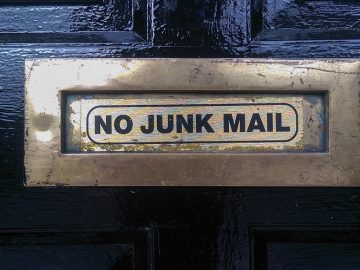SEATTLE — The Washington State Department of Transportation is warning drivers about an aggressive online scam that’s going around claiming to be from toll agencies.
The agency said there has been a recent uptick in fraudulent emails and text messages attempting to trick people into believing they’ve received a final notice for an unpaid Good to Go! toll that must be paid within 24 hours.
The WSDOT said scammers are attempting to trick people into making payments and sharing bank information by impersonating toll agencies not just in Washington state, but also nationwide.
The agency sent out a recent alert to warn Good to Go! users about the scam and reminded users that WSDOT never asks for payment via text message. People who suspect they’ve received a scam text should not click on any links in the message.
The text messages are not only “aggressive” and have a sense of urgency but also threaten that failure to pay could result in fees, suspension of your vehicle registration, or repossession of your vehicle.
ALSO SEE | Unpaid toll text scam tries to swindle Washingtonians out of finances, personal info
“We want to make it clear to everyone that though these look very scary, they’re not from washed out. We wouldn’t be sending you aggressive texts like this,” said Lauren McLaughlin with WSDOT Communications’ Toll Division. McLaughlin said she sees how the messages can be scary and intimidating.
The fraudulent texts appear to target Good to Go! customers, but WSDOT said no one is immune. They’ve had reports of Washingtonians who don’t own a car or drive getting the text alert warning of a final notice regarding an unpaid toll and demanding payment by using a link provided.
“If you truly had a toll bill, if you truly had an outstanding toll bill, we would be sending you something physical in the mail,” McLaughlin explained. “It would be, you know, outlining what charges they are, and telling you lots of information about when that occurred and where that occurred.”
McLaughlin also said the information would be included in your online account on WSDOT’s website.
The online scam has been circulating since March 2024, but McLaughlin said the amount of text messages appears to have intensified this month. She said WSDOT typically handles about 2,000 customer service calls a month. That number has ballooned to 10,000 so far in March.
McLaughlin said not all 10,000 calls are questions about the fraudulent messages, but most are. Some callers have reported receiving the same text message repeatedly.
The department has heard from users who thought the texts were legit and clicked on the provided link, which led to a website that mirrors WSDOT’s website. McLaughlin said victims described being asked for financial information and once provided, an error message pops up and requests an additional bank account information or credit card number.
Alex Giltner said he got two of those fake texts and wasn’t fooled. He said the first clue that it was a fake. He doesn’t own a car. “I got it and I reported it, I don’t even own a car so I thought it was kind of crazy, you know?” Giltner said. He added he worries about others falling for the scam. WSDOT confirmed that some of the bogus text messages are asking for payment of $5.99 or $6.99 on unpaid tolls, and they think the small amount lures some people in, often in a hurry to resolve it quickly. “I definitely feel like people my parents or grandparents age might be a little bit scared by that,” said Giltner.
Anyone who gets the bogus text or email is urged to file a complaint with the FBI Internet Crime Complaint Center and include the phone number from where the text originated and the website listed within the text. to file a complaint.
The FBI said if you clicked any link or provided your information, make efforts to secure your personal information and financial accounts, including disputing any unfamiliar charges.
“In addition to the FBI, we’re also working with these other toll agencies that are being impersonated, trying to coordinate messaging on how to spot these scams, what to do to make sure everyone’s aware of the bigger picture of how, how to deal with these scams,” McLaughlin said.
You can check to see if you actually owe any money to Good to Go by going to their website.






